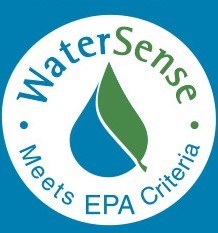
Simple and Effective Ways to Reduce your Water Consumption and its Benefits
Published by : Deanne Pettifer on 27 June 2023
Water is one of the most important resources for human survival. However, the rapid increase in population growth and development has led to an increase in water consumption. Unfortunately, many people do not understand the importance of conserving water. Even those who do are not sure how to reduce their water consumption in their daily lives. If we don't conserve water, it may become scarce in the future. Thankfully, there are six simple steps you can take to conserve water at home. In this blog post, we will provide some simple yet effective ways to reduce your water consumption and their benefits.
1. Take Shorter Showers and Turn Off the Tap When Brushing Your Teeth
Taking shorter showers and turning off the tap when brushing your teeth are some simple habits that can significantly reduce your water consumption. It can also help to save energy and lower your energy bills. By taking shorter showers, you can reduce your water consumption by up to 25%. You can also use a shower timer to help you monitor your water usage while showering.
2. Install Low-flow Toilets and Shower Heads to Reduce Water Consumption
Low-flow toilets and showerheads are designed to use less water than traditional ones. By installing these efficient fixtures, you can save around 25-60% of the usual water consumed. Low-flow showerheads mix air with water to maintain a consistent pressure. As a result, you can save up to 3-4 gallons of water per minute. Similarly, low-flow toilets use only 1.6 gallons of water, compared to the 3.5-7 gallons of water used per flush in traditional toilets.
3. Collect Rainwater to Use for Watering plants or Washing Cars
Rain is a free source of water that comes in abundant supply. You can collect and store rainwater in a barrel or tank to use for watering your plants or washing your car. It can help to conserve water and ensure that your plants receive enough water during the dry season. Collecting rainwater also offers added benefits of reduced soil erosion, improved soil quality, and groundwater recharge.
4. Insulate your Hot Water Tank to Prevent Heat Loss and Decrease Energy Bills
Insulating your hot water tank is a simple and cost-effective way to conserve water and save money on your energy bills. By insulating your water tank, you can reduce heat loss and ensure that the water stays warm for longer. This means you won't have to waste water when waiting for hot water. Additionally, insulating helps to reduce your energy bills since you will have to use less energy to heat your water tank.
5. Check for Leaking Faucets, Toilets, and Pipes that Can Waste up to 20 Gallons of Water Per Day
A dripping faucet or leaking toilet can waste a significant amount of water each day. A faucet that drips only once per second can waste up to 3,000 gallons of water per year. Similarly, a leaking toilet can waste up to 200 gallons of water per day. Therefore, it's essential to check for any leaks you may have in your house and fix them as soon as possible.
6. Educate Yourself on how to Reduce Water Consumption with Simple Habits such as Using a Cup Instead of Running the Tap for Cooking and Washing Dishes.
Small habits go a long way when it comes to saving water. For instance, instead of running the tap when rinsing dishes or when cooking, use a cup to save water. Another way to conserve water and save money is to run the dishwasher and washing machines only when they are full. You can also opt to wash your dishes at once instead of washing them one at a time.
Conclusion:
Water conservation is a collective responsibility. By implementing these simple yet significant steps, we can ensure that we preserve the water resources we have. Even the smallest efforts can make a considerable impact in reducing water usage, saving energy and money. The benefits of conserving water are enormous, ranging from reduced water bills, cleaner environment, preserving wildlife habitat to living in a more sustainable world. Let's make a conscious effort to protect and conserve water for the future generation.